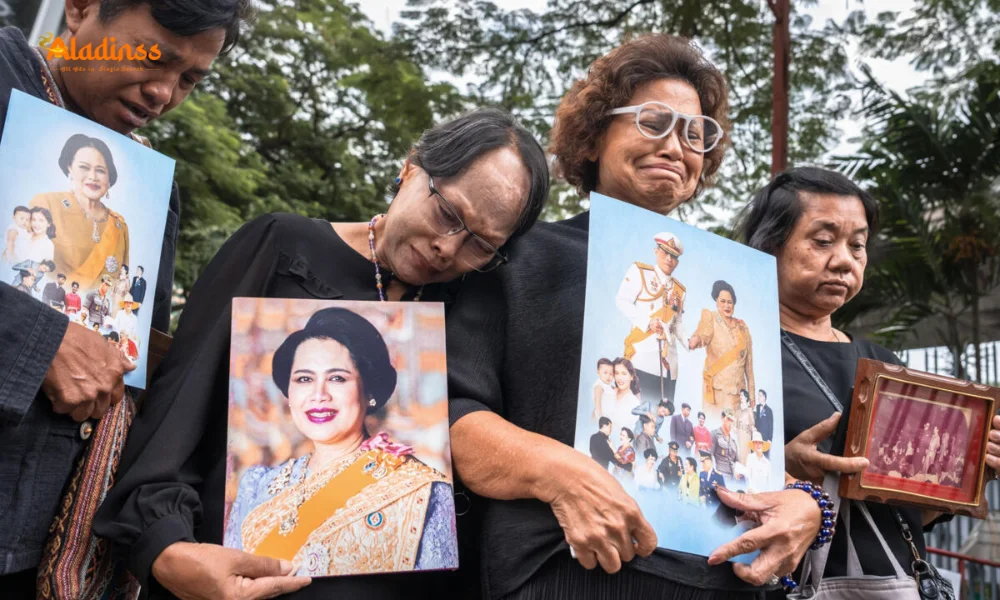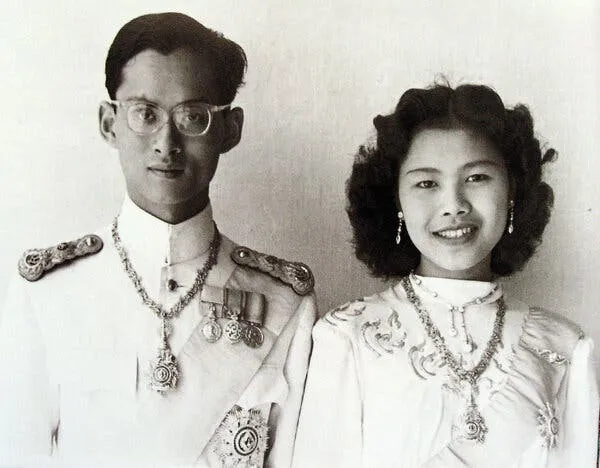Thailand Mourns Queen Sirikit’s Death at 93: Nation Grieves Iconic Royal Legacy

Thailand Mourns Ex-Queen Sirikit, ‘Mother of the Nation,’ Dead at 93
Thailand is in deep mourning following the passing of former Queen Sirikit, revered as the Mother of the Nation, at the age of 93 on October 24, 2025. The royal palace announced that Sirikit, the mother of King Vajiralongkorn and wife of Thailand’s longest-reigning monarch, King Bhumibol Adulyadej, passed away at Chulalongkorn Hospital in Bangkok. Her death marks a significant moment for the Thai royal family and the nation, given her immense popularity and deep connection with the Thai people, who celebrate her birthday as the country’s official Mother’s Day.
Sirikit, a beloved figure known for her elegance and compassion, had been hospitalized since 2019, battling multiple illnesses, including a blood infection in October 2025. Her body will lie in state at the Grand Palace’s Dusit Thorne Hall, as the nation begins a year-long mourning period ordered by King Vajiralongkorn. The loss of the former queen, often compared to Jackie Kennedy for her style and grace, has left Thais reflecting on her legacy as a caring matriarch who forged strong bonds with the public.

A Nation Grieves: Sirikit’s Legacy
Former Queen Sirikit was a symbol of grace and dedication, often referred to as the Mother of the Nation. Her birthday, August 12, is celebrated as Thailand’s Mother’s Day, reflecting her deep connection with the people. A 53-year-old housekeeper, Sasis Putthasit, expressed the nation’s collective grief, stating, “She was a mother figure to the country, and now she’s gone.” Despite her declining health in recent years, the news of her passing came as a shock to many, who had hoped for her recovery despite her advanced age.
Sirikit’s life was marked by her commitment to the Thai people. During the 1960s, she toured rural areas, engaging with villagers and championing community development initiatives. Her warmth and accessibility endeared her to millions, while her elegance earned her comparisons to global icons like Jackie Kennedy. Sirikit’s public appearances, often alongside her husband King Bhumibol, who reigned from 1946 to 2016, solidified her role as a constant companion to Thailand’s most revered monarch. Her portraits, adorned with gold, are a common sight in homes and public spaces across the country.
Royal Family and National Mourning
The Thai royal family, part of the Chakri dynasty established in 1782, holds a revered place in Thai society, with members often treated as semi-divine figures. Sirikit’s passing has prompted a year-long mourning period, as announced by the palace. King Vajiralongkorn, her son, has assigned royal family members to oversee the mourning rituals, which began with her body being moved to the Grand Palace. Thai news anchors donned black attire during broadcasts on October 25, 2025, reflecting the nation’s somber mood. Flags will fly at half-mast for 30 days, and public celebrations such as weddings and concerts have been banned during this period.
The palace’s statement highlighted Sirikit’s prolonged health struggles, noting that her condition worsened due to a blood infection in October 2025. Despite medical efforts at Chulalongkorn Hospital, she passed away peacefully on Friday. The announcement has sparked an outpouring of tributes, with Thai diplomat Pavin Chachavalpongpun describing her death as a “profoundly significant event” due to her popularity and her close association with the late King Bhumibol, who remains a towering figure in Thai history.
Sirikit’s Public Life and Global Presence
In her prime, Sirikit was a global ambassador for Thailand, mingling with world leaders and celebrities such as Elvis Presley during the 1960s. Her charm and sophistication made her a standout figure on the international stage, while her domestic efforts focused on uplifting rural communities. She spearheaded initiatives to preserve Thai culture and support local artisans, earning her widespread admiration. Her public engagements, however, became limited in recent years due to her ailing health, compounded by Thailand’s strict lese majeste laws, which restrict reporting on the royal family.
Sirikit’s role as a fashion icon also left a lasting mark. Her elegant style, often incorporating traditional Thai silk, inspired generations and promoted the country’s textile industry. Her ability to balance royal duties with a relatable persona made her a beloved figure, even as the monarchy faced occasional public scrutiny. In 2008, her attendance at the funeral of a royalist protester drew attention, highlighting her symbolic role in Thai society, despite the monarchy’s constitutional position above politics.
Challenges Facing the Thai Monarchy
While the Thai royal family remains deeply respected, it faced unprecedented challenges during the 2020 street protests, when tens of thousands of young Thais demanded political reforms, including changes to the monarchy’s role. This public dissent was a historic shift in a country where the monarchy has traditionally been above criticism. The protests highlighted tensions around the monarchy’s influence, particularly as King Vajiralongkorn’s succession remains unclear, with no formally named heir among his seven children, including his 20-year-old son, Dipangkorn Rasmijoti.
The passing of Sirikit adds another layer of complexity to the monarchy’s future. Her role as a unifying figure, alongside King Bhumibol, provided stability during turbulent times. Her absence may intensify discussions about the monarchy’s evolving role in modern Thailand, especially as younger generations push for greater transparency and accountability. The year-long mourning period will likely serve as a time for reflection on her contributions and the monarchy’s place in a rapidly changing society.
Cultural and Social Impact of Sirikit’s Legacy
Sirikit’s contributions extended beyond her royal duties. Her efforts to promote Thai silk and traditional craftsmanship helped preserve cultural heritage while boosting local economies. Her visits to rural areas demonstrated a commitment to addressing the needs of Thailand’s most vulnerable communities, earning her the affectionate title of Mother of the Nation. These initiatives left a lasting impact, with many Thais crediting her with fostering a sense of national pride and unity.
The mourning period will see an outpouring of tributes, with citizens expected to wear black and participate in memorial events at the Grand Palace. The ban on public celebrations reflects the depth of respect for Sirikit, mirroring the national mourning that followed King Bhumibol’s death in 2016. Her legacy as a compassionate and stylish matriarch will continue to inspire, even as Thailand navigates the challenges of modernization and political change.
As Thailand bids farewell to former Queen Sirikit, the nation reflects on her extraordinary life and the indelible mark she left on its history. Her passing is not only a loss for the royal family but for all Thais who saw her as a symbol of compassion and strength. The coming months will be a time of remembrance, as the country honors her contributions and looks toward the future of the monarchy under King Vajiralongkorn’s reign.
Comment / Reply From
No comments yet. Be the first to comment!











